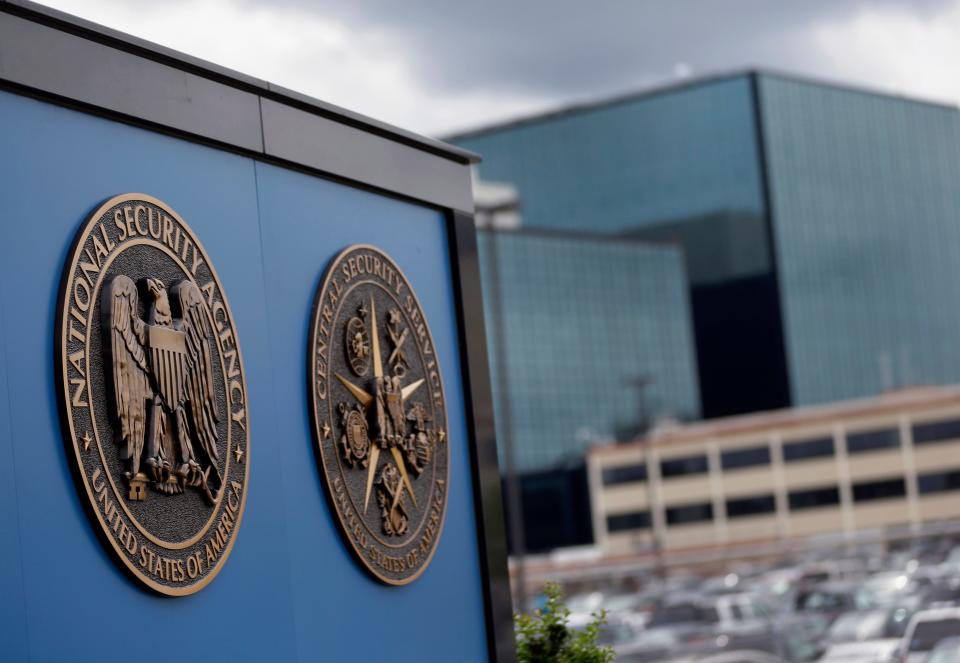'A free pass to seize and sift': Federal court upholds terrorism conviction in controversial mass surveillance case
A federal appeals court on Wednesday upheld the terrorism conviction of a refugee from Uzbekistan in a controversial case that has shed light on the widespread, ongoing efforts of the U.S. government to spy on international phone, email and chat communications.
Jamshid Muhtorov — a legal permanent resident of the U.S. whose email communications were searched by the U.S. government under Section 702 of the Foreign Intelligence Surveillance Act (FISA) — has spent almost all of the past nine years in federal custody.
On Wednesday, the American Civil Liberties Union decried the ruling by the U.S. 10th Circuit Court of Appeals. The ACLU described Muhtorov, 45, as a prominent human rights defender who committed no terrorist acts, but still became a target of overzealous U.S. authorities with broad search powers. He was living in Aurora, Colorado and was employed as a truck driver at the time of his arrest in 2012.
The ACLU said Wednesday that the case continues to present troubling questions for the American public.
Nov. 8: Supreme Court may turn back a challenge to FBI surveillance of Muslims
Fact? Checked. Make sure you have the real story with the Checking the Facts newsletter.
“We don’t give up bedrock Fourth Amendment protections when we communicate with family, friends, and colleagues abroad, contrary to the court’s ruling today. Under Section 702, the government for years has amassed our online messages, chats, and emails without a warrant, violating the constitutional rights of countless Americans, including Mr. Muhtorov,” said Patrick Toomey, senior staff attorney with the ACLU’s National Security Project.

“Mass surveillance threatens all of us. The FBI and NSA don’t have a free pass to seize and sift through our most sensitive communications, and we will keep fighting to ensure they can’t violate the Constitution.”
Federal attorneys in the appeals case continue to maintain that Muhtorov fully intended to provide material support to a designated foreign terrorist organization. The FBI alleged that he planned to travel overseas and fight on behalf of the Pakistan-based Islamic Jihad Union, which has conducted suicide attacks in Uzbekistan and claims responsibility for attacks against coalition forces in Afghanistan.
He was convicted of conspiring to support a terrorist group and making plans to join the organization himself. He received an 11 year sentence, less than what prosecutors requested.
In 2013, after Edward Snowden’s revelations about the scope of the National Security Agency’s mass surveillance, Mr. Muhtorov became the first person to receive notice from the government about the monitoring of his communications under Section 702 of FISA. The highly controversial statute allows the NSA to engage in dragnet, warrantless surveillance of Americans’ international phone calls, emails, chats, and web-browsing.
Shortly after Mr. Muhtorov arrived in the United States in 2007, the U.S. government began surveilling him, and in 2012, it charged him with attempting to provide material support to the Islamic Jihad Union (IJU) in Uzbekistan.
For years, federal agents tracked Mr. Muhtorov’s movements, installed bugs in his home, and listened to the intimate details of his family life. They recorded his phone calls and intercepted untold amounts of his electronic communications.
Under Section 702, the government intercepts the international communications of hundreds of thousands of people, including people living in the United States. The government stores these communications in massive databases, retains them for years, and searches them repeatedly for information about people in the United States — including in domestic criminal investigations.
The Justice Department maintains the FISA program does not violate Fourth Amendment protection against illegal searches because it picks up U.S.-based individuals only while targeting those overseas.
Muhtorov was arrested by FBI agents on Jan. 21, 2012, in Chicago as he was trying to board a plane to Turkey. Court documents say he was carrying $2,865 and recently purchased electronic equipment — including two iPhones and an iPad tablet — for the IJU. He intended to become a propaganda expert.
“‘Yeah, but what I really want to do is go fight and lose my life in the jihad,’” a federal prosecutor quoted Muhtorov as telling co-defendant and fellow Uzbekistan refugee Bakhityor Jumaev in a phone conversation recorded by the FBI.
"He wanted to fight with a 'weapon in one hand and with the Quran in the other,'" the court document says.
Muhtorov’s attorneys said at his trial that his talk about joining a jihad was a fantasy similar to dreaming of being in a cavalry charge with swords flashing while riding alongside Lawrence of Arabia, and that his claim of joining the IJU was a tale he concocted while driving as a commercial truck driver 18 hours a day.
Contributing: Associated Press
This article originally appeared on USA TODAY: Federal court upholds terrorism conviction in mass surveillance case

